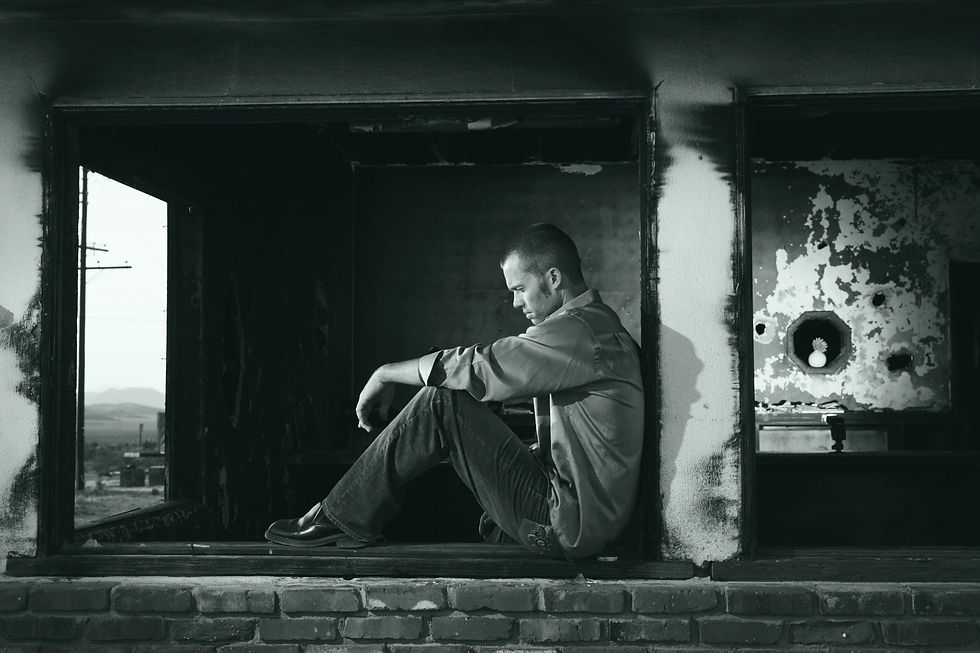The 5 Most Common Fears About Recovery and Sobriety
- Tyler Zuccarelli

- Aug 25, 2024
- 3 min read
Embarking on the journey of recovery and getting sober is a monumental decision that can bring a mix of emotions—hope, relief, and fear. For many, the fear of the unknown can be paralyzing, preventing them from taking that crucial first step toward a healthier life.
Understanding these fears can help individuals confront them head-on and find the courage to move forward. Here are the five most common fears about recovery and getting sober.
1. Fear of Failure in Sobriety
One of the most pervasive fears among those considering sobriety is the fear of failure. Many people worry that they won’t be able to stay sober, especially if they’ve tried and relapsed before. This fear is often rooted in self-doubt and the pressure of perfection. It’s important to recognize that recovery is a process, not a one-time achievement. Relapse can be a part of this journey and doesn’t equate to failure. Embracing the possibility of setbacks while focusing on progress rather than perfection can help alleviate this fear.

2. Fear of Losing Identity
Alcohol or drug use often becomes intertwined with a person’s identity, especially if it has been a significant part of their social life or self-perception. The fear of losing this identity can make sobriety seem daunting. People may worry about who they will be without substances, how they will interact with others, or what their life will look like in recovery. It’s crucial to understand that while sobriety may change certain aspects of your life, it also opens the door to discovering a more authentic version of yourself, free from the grip of addiction.
3. Fear of Facing Emotional Pain
Substances often serve as a way to numb emotional pain, whether it’s past trauma, anxiety, depression, or everyday stress. The fear of confronting these feelings without the crutch of drugs or alcohol can be overwhelming. However, recovery provides the tools and support necessary to face and heal from these emotional wounds. Therapy, support groups, and other resources can help individuals process their emotions in a healthy way, ultimately leading to greater emotional resilience and well-being.

4. Fear of Social Isolation
Social dynamics often revolve around alcohol or drugs, making the fear of social isolation a significant concern for those contemplating sobriety. The thought of losing friendships, being excluded from gatherings, or feeling out of place in social situations can be terrifying. However, recovery often leads to the development of new, healthier relationships with people who support your sobriety. It’s possible to maintain existing friendships while also finding new social circles that align with your sober lifestyle.
5. Fear of the Unknown
The fear of the unknown is a common thread that runs through all the other fears. Recovery requires stepping into unfamiliar territory, and this uncertainty can be frightening. Questions like "What will my life look like?" or "Will I be happy?" are natural but can also hold you back. It’s important to remember that while the future is uncertain, recovery offers the opportunity for a better, healthier life. Embracing this uncertainty with an open mind and focusing on the positives of sobriety can help mitigate this fear.
In conclusion, Fears about recovery and getting sober are normal and can be powerful deterrents. However, understanding these fears and addressing them with compassion and support can help you move past them. Recovery is a journey that involves growth, change, and the opportunity to live a fulfilling life free from addiction. By confronting these common fears, you can take the first step toward a brighter future.
If you or someone you know is looking for help for a drug or alcohol addiction, please get in touch with us today for help.
📞 (805) 519-8805





Comments